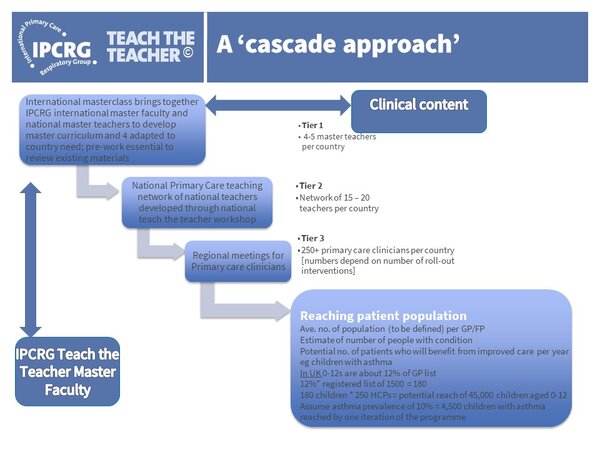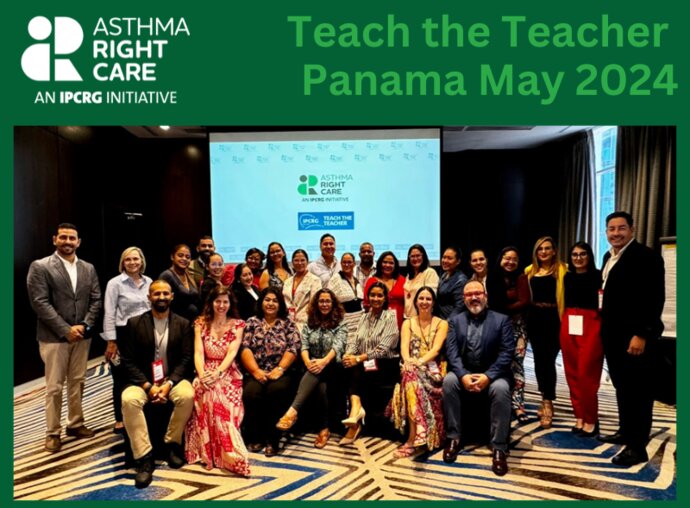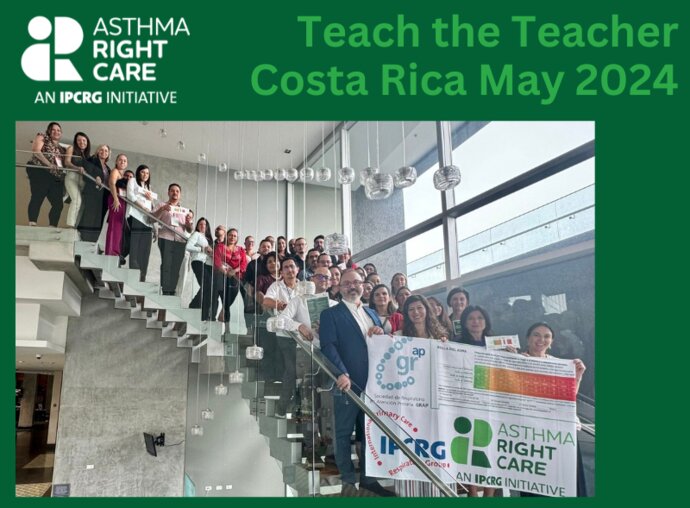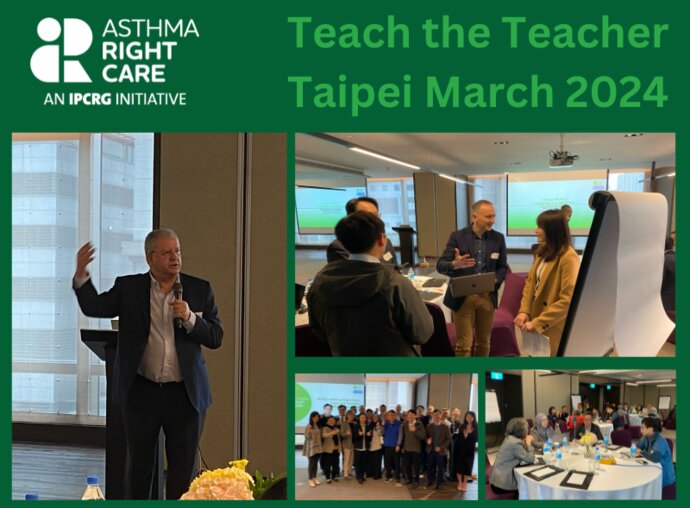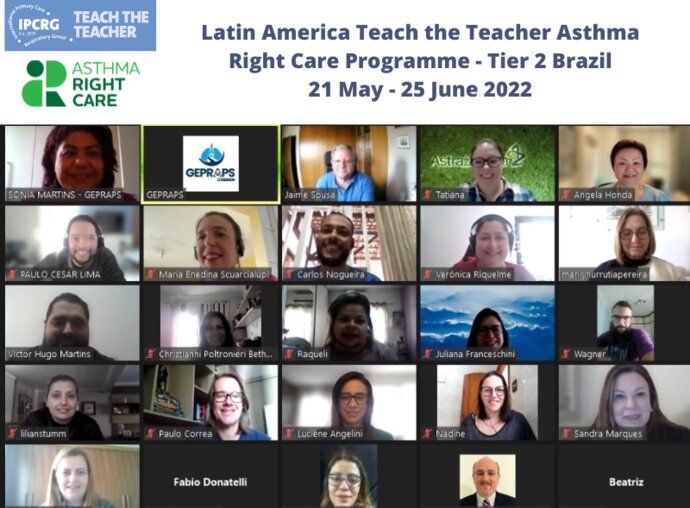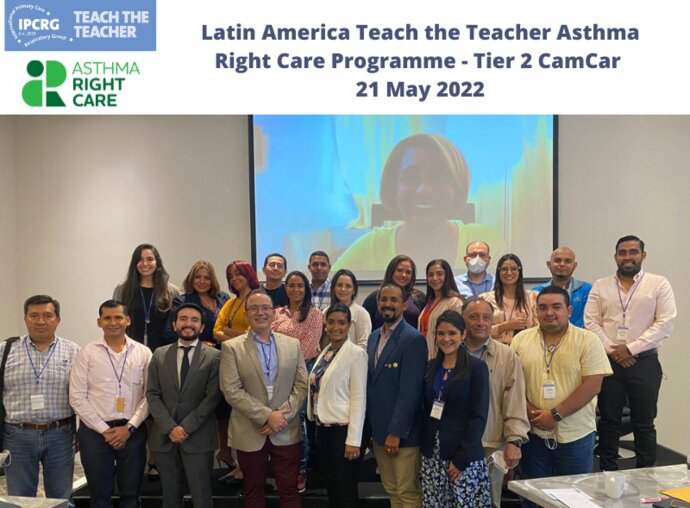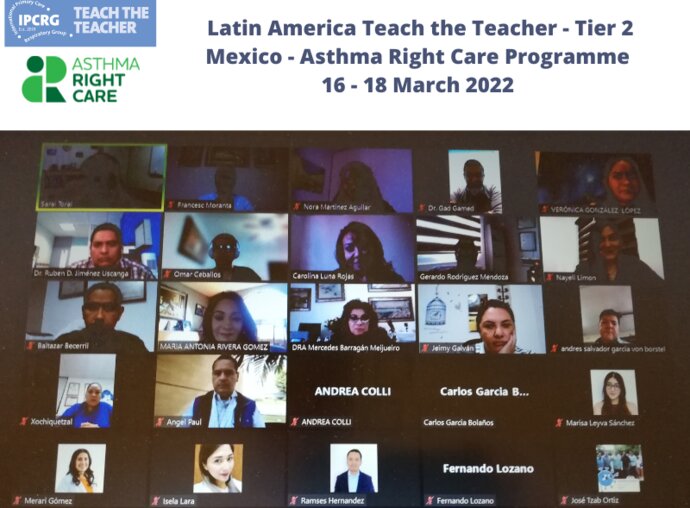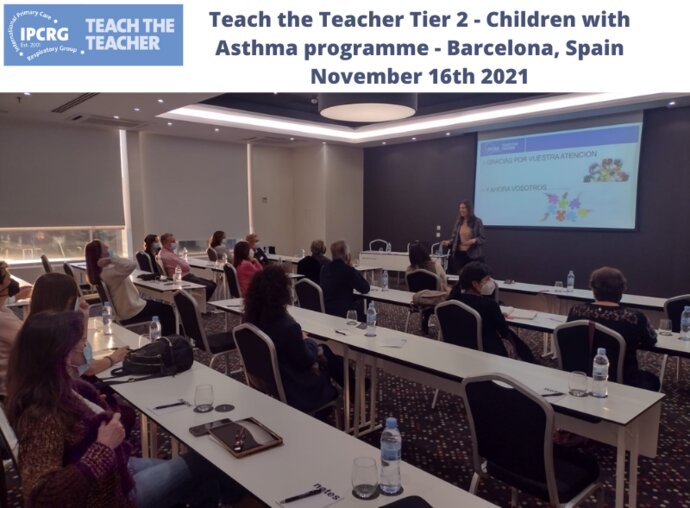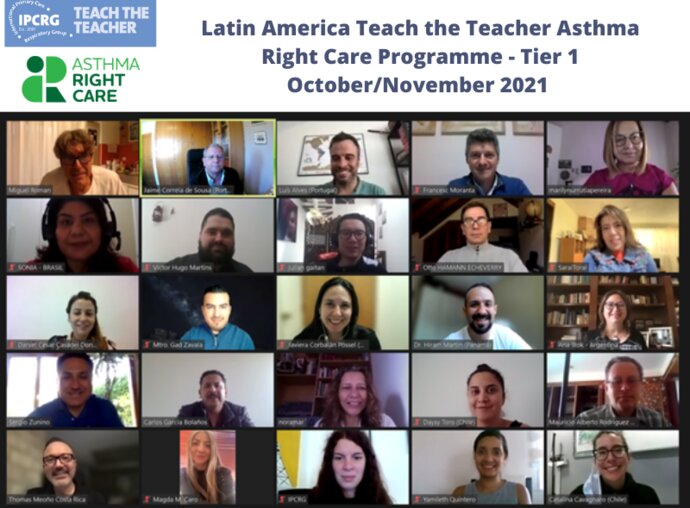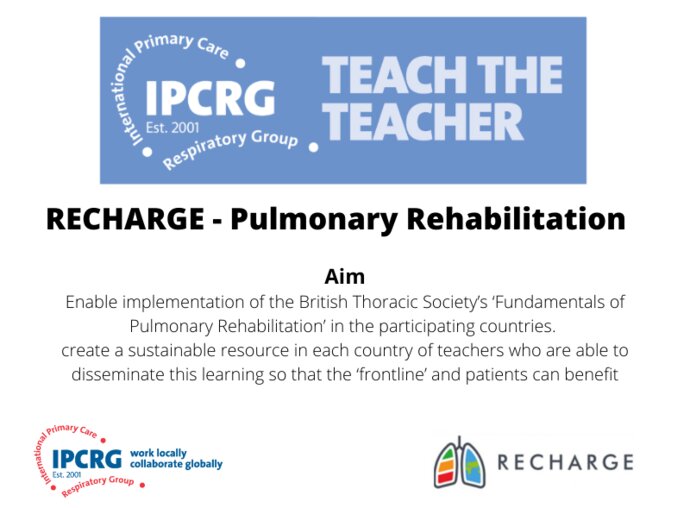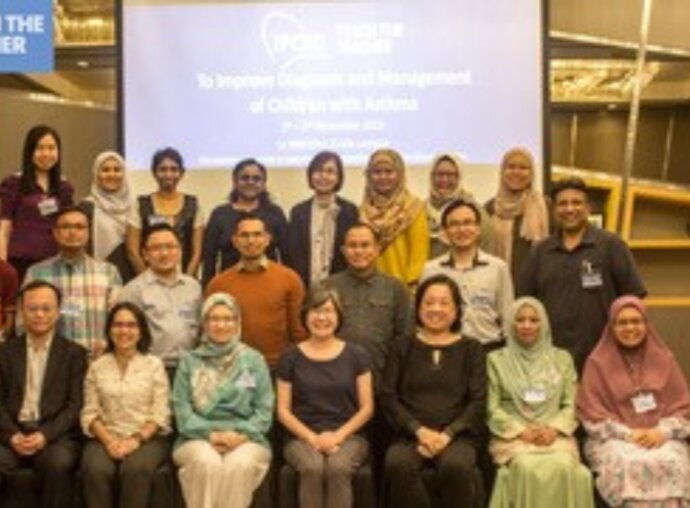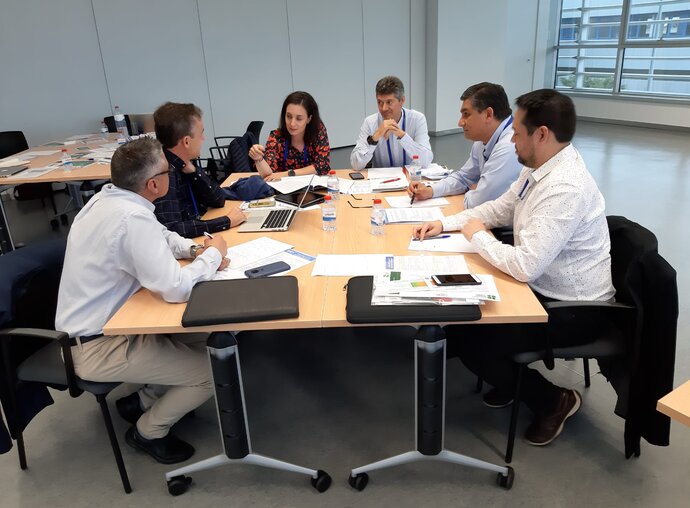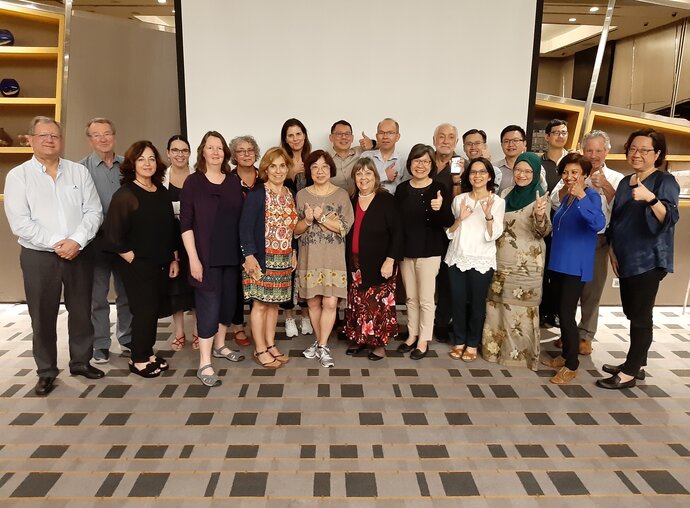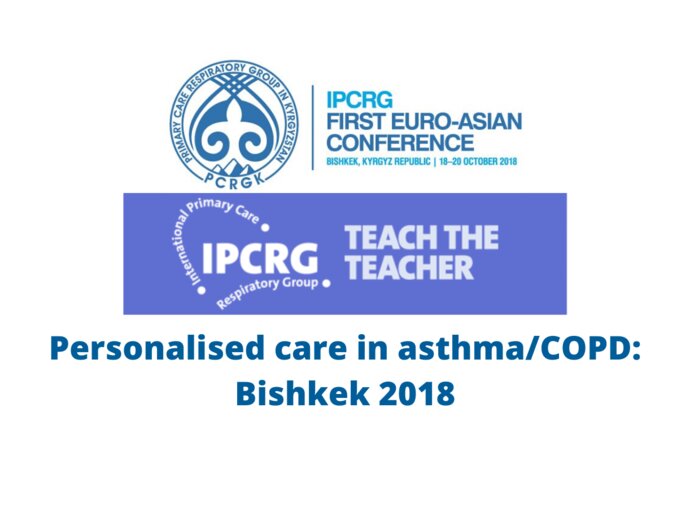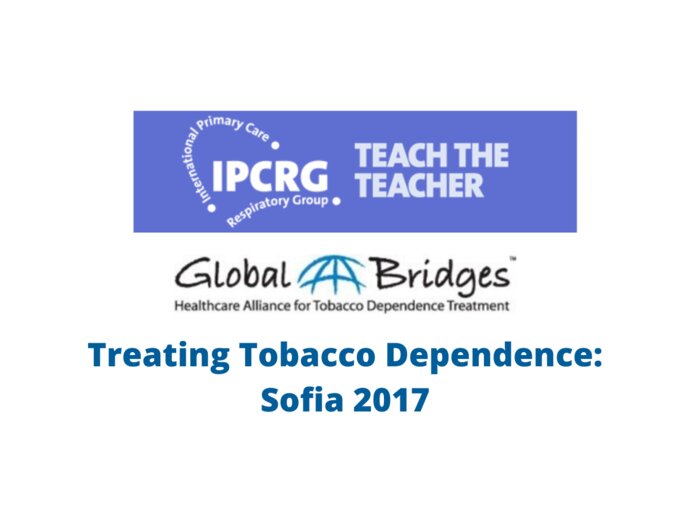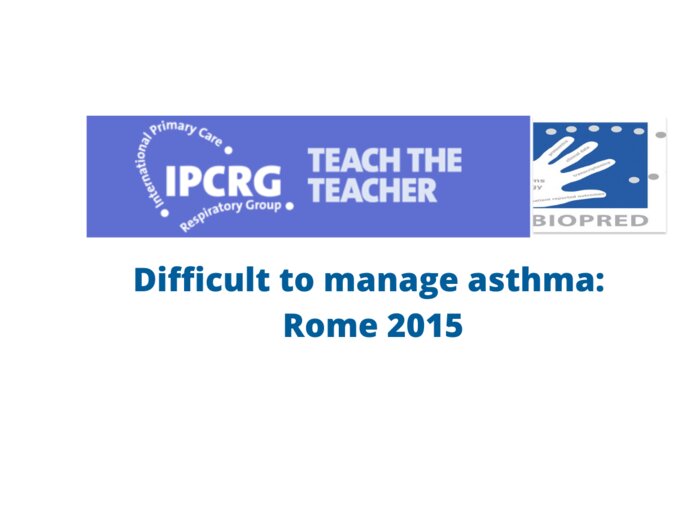Teach the teacher
IPCRG Teach the Teacher: teaching how to teach, adapt, think and do
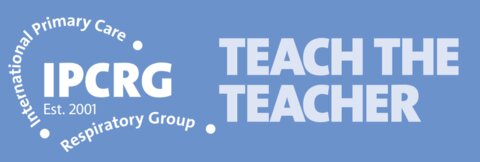
The IPCRG Teach the Teacher© model represents an innovative educational approach in respiratory care, which seeks to build international, national and local networks of primary care clinicians and educators; it facilitates adaptation of evidence based treatment approaches to local primary care systems; it develops educational capability in addition to knowledge, skills and practice for diagnosis and management of childhood asthma. The programme is collaborative.
Organisation
An international master faculty will work with advisers on clinical content, and in-country teams, who in turn will build national and regional networks, engaging stakeholders in policy and clinical practice change. Unlike conventional ‘train the trainer’ programs based on a model of cascading knowledge, this approach empowers clinicians working in multiple health systems and in different languages, to think creatively about the development of context specific programmes that strive to maintain fidelity to the evidence that has been generated in ‘real life’ primary care.
Our approach is influenced by the European Academy of Teachers in General Practice (EURACT) primary care teaching and learning model, known as the “BLED course”1 2 3, that is now in its 27th year. But also draws on our experiences of working within the IPCRG network and we have tested this approach successfully with two European respiratory programmes and a global programme:
i. UBIOPRED - Difficult to manage asthma, a two-tier programme with eight countries in 2015 4 5 6
ii. Global Bridges - Treating tobacco dependence – a three tier programme with four Eastern European countries in 2017/187.
iii. Children with asthma - a three tier programme with Malaysia, Spain, Singapore and US. See here
Fundamental to this approach, is a belief in the value of primary care defined by WHO.8 IPCRG advocates the strengths of family physicians and other primary care professionals, who are neighbourhood-based expert generalists skilled at:
- Dealing compassionately with patients
- Providing person-centred care by relating to patients as individuals
- Using problem-solving to help patients through uncertainty and marginalise danger without medicalising normality
- Using a collaborative approach to manage co-morbidity and coordinating complex care
- Understanding and utilising the physical environment of practice populations and the interrelationships between health and social care
- Offering a holistic approach by understanding and respecting patients’ values, cultures and family beliefs, and how these will affect the experience and management of illness and health9
